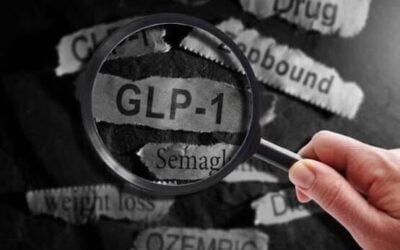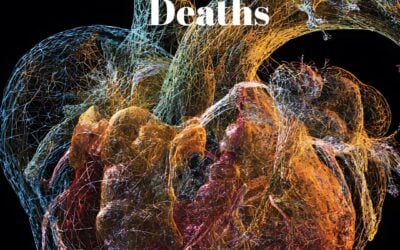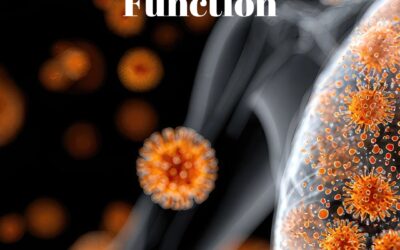Node Smith, ND
A new study has provided evidence that antibiotic usage is associated with an increased risk of developing rheumatoid arthritis.
Patients exposed to antibiotics were 60% higher in developing rheumatoid arthritis
Researchers from Keele University and the Quadram Institute analyzed data from primary care medical records. They found that the odds of developing rheumatoid arthritis were 60% higher in those exposed to antibiotics than in those not exposed.
The odds increased with the number of antibiotics treatments, and how recently they were taken.
Rheumatoid arthritis is likely caused by a complex mix of genetics and different environmental factors
Rheumatoid arthritis affects 400,000 people in the UK and this study suggests it affects 26 in 100,000 people who have taken antibiotics. Rheumatoid arthritis is likely to be caused by a complex mix of genetics and different environmental factors, so this study isn’t reason to stop taking antibiotics where they are needed. But it does open up a new avenue of exploration to finding the triggers, which could be vital in the search for ways of preventing this condition.
Although this study was large, it can’t say for sure whether it is the antibiotics that increase the risk, or the infection itself.
Type of infection is important
The type of infection was important. Upper respiratory tract infections treated with antibiotics were more associated with rheumatoid arthritis cases, but this association wasn’t seen in untreated cases. The analysis of the type of antibiotic showed that all classes increased the risk of developing rheumatoid arthritis, so this suggests the risk could be derived from the antibiotics. This has also been seen in other recent studies associating antibiotic usage with an increased risk of other autoimmune conditions, including type 1 diabetes and autoimmune liver disease.
As well as targeting the bacteria behind infections, antibiotics affect the microbiome. This complex ecosystem of microbes helps maintain our own health and plays an important role in modulating the immune system. A number of small studies have found that the microbiome in people with rheumatoid arthritis is less diverse, but this is the first study that has investigated the effect of antibiotic usage.
Small studies found that the microbiome in people with rheumatoid arthritis is less diverse
Professor Christian Mallen, Head of School for Primary, Community and Social Care at Keele University, said: “This exciting work offers another glimpse into the complexity of understanding rheumatoid arthritis, opening the door for future work in this area. New collaborations, such as the one between the Quadram Institute and Keele University, allow exciting new interdisciplinary research that is needed to progress understanding in this field.”
Dr Lindsay Hall, Group Leader at the Quadram Institute on the Norwich Research Park, said: “The more we learn about the complexity of the microbiome, and how factors including antibiotics impact these diverse microbial ecosystems, the more insights we have into how this may alter key health outcomes. The challenge now is to unpick the mechanisms that link the microbes to different conditions, including RA, so that we can develop new therapeutics.”
Source:
- Sultan, A.A. et al. (2019) Antibiotic use and the risk of rheumatoid arthritis: a population-based case-control study. BMC Medicine. doi.org/10.1186/s12916-019-1394-6.
 Node Smith, ND, is a naturopathic physician in Humboldt, Saskatchewan and associate editor and continuing education director for NDNR. His mission is serving relationships that support the process of transformation, and that ultimately lead to healthier people, businesses and communities. His primary therapeutic tools include counselling, homeopathy, diet and the use of cold water combined with exercise. Node considers health to be a reflection of the relationships a person or a business has with themselves, with God and with those around them. In order to cure disease and to heal, these relationships must be specifically considered. Node has worked intimately with many groups and organizations within the naturopathic profession, and helped found the non-profit, Association for Naturopathic Revitalization (ANR), which works to promote and facilitate experiential education in vitalism.
Node Smith, ND, is a naturopathic physician in Humboldt, Saskatchewan and associate editor and continuing education director for NDNR. His mission is serving relationships that support the process of transformation, and that ultimately lead to healthier people, businesses and communities. His primary therapeutic tools include counselling, homeopathy, diet and the use of cold water combined with exercise. Node considers health to be a reflection of the relationships a person or a business has with themselves, with God and with those around them. In order to cure disease and to heal, these relationships must be specifically considered. Node has worked intimately with many groups and organizations within the naturopathic profession, and helped found the non-profit, Association for Naturopathic Revitalization (ANR), which works to promote and facilitate experiential education in vitalism.
Node Smith graduated from the National University of Natural Medicine (NUNM) in 2017, and is currently licensed as a naturopathic physician in Oregon and working towards becoming licensed in Saskatchewan, Canada as well.





















